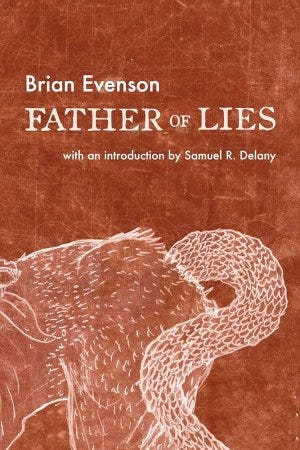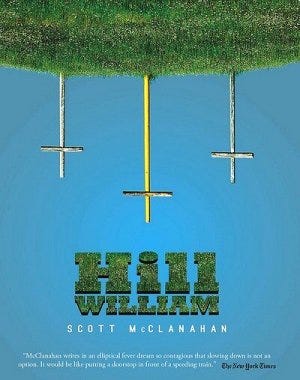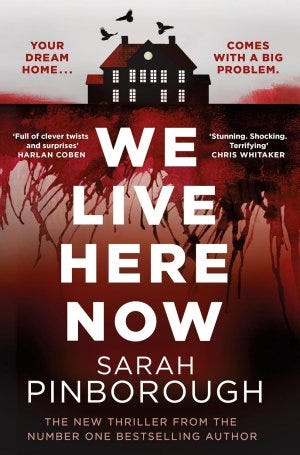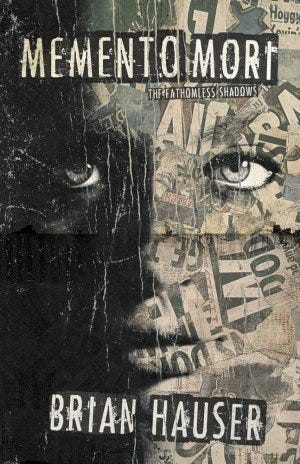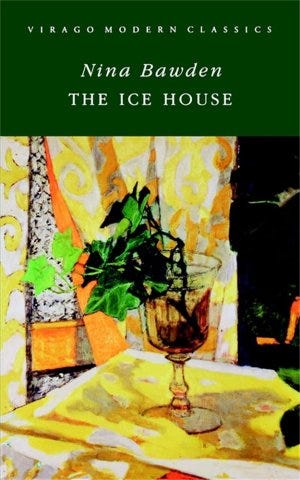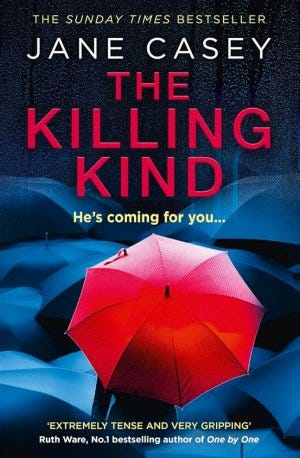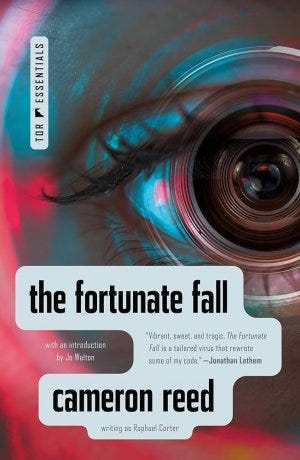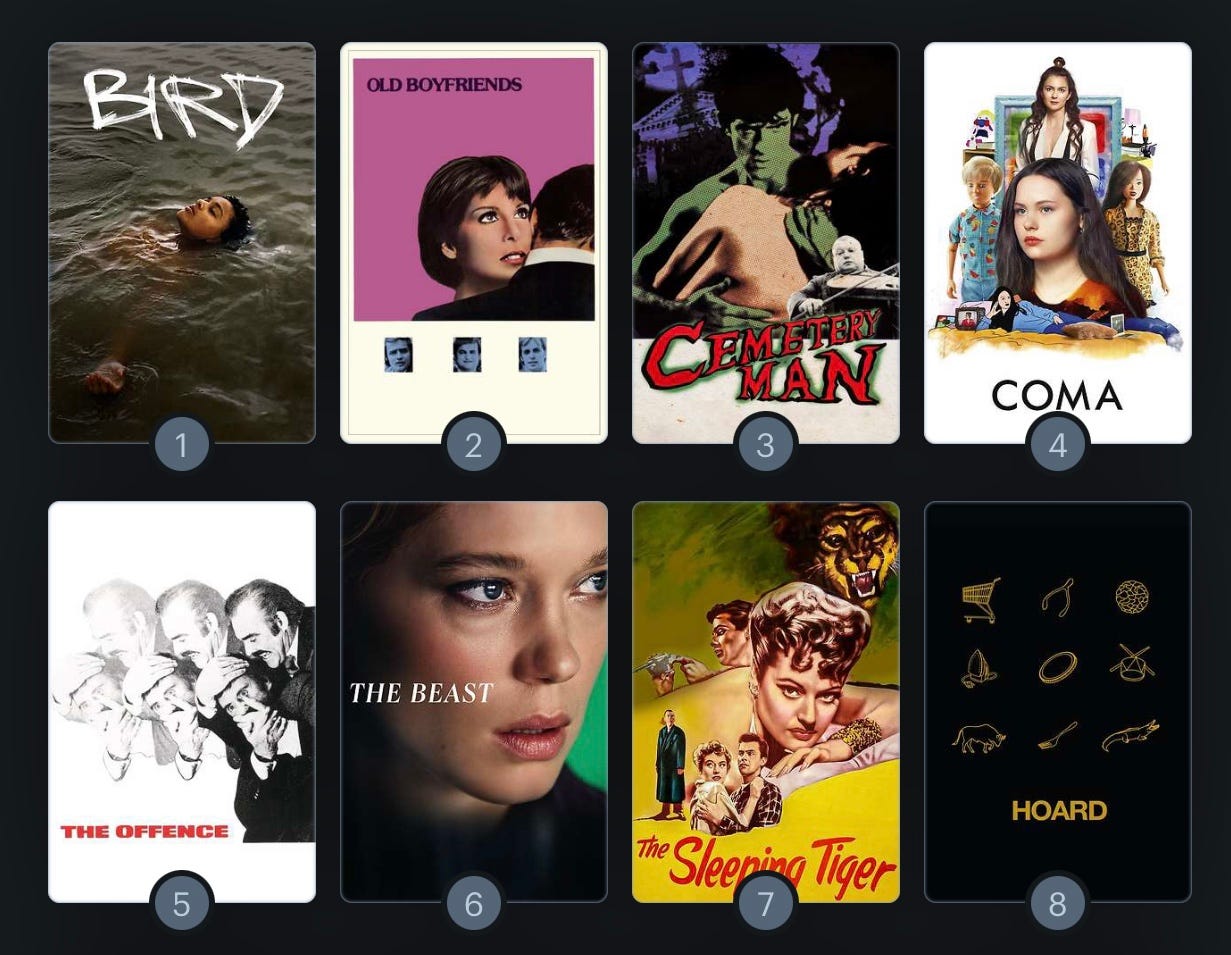I won’t lie: this has been a bit of a rough reading year so far. It’s not that I’ve been reading bad books, at least for the most part; it’s that I haven’t found anything I’ve really loved, felt particularly passionate about or inspired to grapple with. Instead, I’ve had a parade of books that make me say ‘that was good!’ before I promptly move on and never think about them again.
Throughout January, February and March, I had more success watching films and TV than I did reading books (scroll down for some film recs). Thankfully, the curse seems to have lifted recently, but this bumpy period has left me with a somewhat scattered reading diary for the past couple of months. This is an extremely mixed bag of books so let’s get into it.
A story that mixes supernatural horror with the much more frightening realities of human transgression, Brian Evenson’s Father of Lies revolves around a church official, Eldon Fochs, who visits a psychiatrist with descriptions of disturbing, violent dreams. Are these, in fact, confessions? When the ‘dreams’ coincide with real-life allegations, Fochs’ church – the sinister Corporation of the Blood of the Lamb – insists the psychiatrist must surrender his notes. As well as being a horror story, this is a vicious religious satire, and it comes as no surprise to learn the author is ex-LDS.
It’s a short, sharp nightmare of a book that deals with religious institutions, repression, and the monstrous things lurking beneath the surface of seemingly normal lives. Evenson’s writing is clinical in a way that makes everything feel even more disturbing – he never lingers too long on the details, which somehow makes it worse. My only complaint: I’d have preferred it if the narrative had stuck with the mixed-media format it has at the beginning, rather than switching to the rather flat perspective of the villain.
Hill William by Scott McClanahan is a set of linked short stories about a boy’s coming-of-age in a small, hardscrabble West Virginia town. This felt like a window into a place and way of life I know little about and aspects of American life that are rarely explored in contemporary fiction. While it can be harrowing (be warned: there are scenes of child abuse and animal cruelty), there’s beauty too, and it’s effective. It sparked memories of a couple of novels I read years ago and otherwise wouldn’t have recalled – Girlchild by Tupelo Hassman and Young God by Katherine Faw Morris – and it also feels like a precursor to more recent alt-lit-adjacent stuff like Gabriel Smith’s BRAT (albeit better, as more authentic-feeling).
In the mood for a lighter read, I made a beeline for Sarah Pinborough’s latest, We Live Here Now. It’s a zippy gothic-flavoured thriller that sees a troubled couple moving into a creepy, creaky mansion on the moors (yes, this is my idea of a lighter read). Of course, they’re keeping secrets from each other, and on top of that, Emily’s ongoing recovery from an illness has left her susceptible to delusions. So when she starts to believe the master bedroom is host to a mysterious supernatural power, the stage is set for the kind of ‘is any of this really happening’ mindfuckery that Pinborough does so well.
Information is drip-fed in just the right way: while the reader is always a few steps ahead of the characters, it’s still difficult to guess how it’s all going to end. We Live Here Now doesn’t reinvent the wheel, but if you’re looking for a gripping, pacy read it definitely fits the bill. I thoroughly enjoyed it. (I read a review copy of this one – it’s out on 20 May.)
Brian Hauser’s Memento Mori: The Fathomless Shadows – a faux-biography of a fictitious filmmaker, Tina Mori – has been on my wishlist for ages, as part of my ongoing obsession with horror stories about lost and/or cursed media. It’s difficult to get hold of, but having finally done so and read it, I... kind of understand why it’s not better known. That’s not necessarily a complete condemnation of the book, which I enjoyed in parts; it’s more an acknowledgement that it sits in a very specific niche and doesn’t have much wider appeal.
It starts well, with a nesting doll of narratives framing Mori’s bio inside the story of a missing teen obsessed with her films. But there are two major problems. Firstly, Mori and her biographer, C.C. Waite, are just not very interesting, and I was unconvinced that their cliched-sounding amateur efforts would ever become legendary cult movies. Secondly, the story is heavily – and I do mean heavily – indebted to Robert W. Chambers’ The King in Yellow, a horror classic I have never actually managed to finish. As a result, I found it slow going and, although I was impressed by the atmosphere, I longed for something to break up the narrative a bit. In summary, it’s good, but far from the best cursed-film story I have ever read. Only buy this if you’re a big King in Yellow fan.
I picked The Ice House off my physical to-read shelf; I’ve owned a copy for years and can’t remember why I bought it. This is a 1983 novel by Nina Bawden, who is better known for her children’s books. Its main focus is the friendship between two women, Ruth and Daisy. In the compelling prologue, we meet them as teenagers, but for the rest of the story, they are middle-aged. When Daisy’s husband Luke dies, various secrets are revealed, shattering Ruth’s perceptions of both her neighbours’ lives and her own family, and cracking open her marriage.
The way this book is structured, or rather not structured, is frustrating. Nothing seems to have anything to do with anything else (not least the titular ice house). Side characters are introduced and then disappear. Things just happen, and very few of them are connected. Sometimes, when I read an older book, especially one labelled as any kind of ‘classic’, I imagine (perhaps naively) that even if I dislike it I can at least expect a well-put-together story. Unfortunately, The Ice House fails on that front. I wouldn’t recommend this. If you want to read a 20th-century novel about people having depressing relationships, read Anita Brookner. If you want to read an adult novel by a children’s author, read The Killjoy by Anne Fine.
As with Louise Doughty’s Apple Tree Yard, I watched the TV adaptation of Jane Casey’s The Killing Kind, really enjoyed it, and felt inspired to pick up the book. The key difference is that the TV version of Apple Tree Yard was extremely faithful to the source material, whereas, as I quickly discovered, The Killing Kind was altered so extensively that an extremely important thing (being vague to avoid spoilers) from the TV series doesn’t actually happen at all in the book.
However, for something I would never have even noticed otherwise, I had a lot of fun with this. It’s a twisty thriller following a barrister who finds she has no choice but to turn to her former stalker for help. I can see why the screenwriters changed the story, and some of their choices were smart (good call to cut that weird Vicky/Vicki subplot) while others push the plot into more predictable territory. Still, I enjoyed watching and then reading about two different versions of the same characters. I think it’s fair to say the book versions are less plausible but more entertaining.
Cameron Reed’s The Fortunate Fall is a cult classic cyberpunk novel from 1996, and caught my eye last year when it was reissued as part of the Tor Essentials line. Like many cyberpunk books, it’s prescient in some ways while very much of its time in others; the language and pop-culture references are so very 90s/Gen X it’s difficult to situate yourself in the book’s centuries-into-the-future setting. I found this interesting in parts, but very much not for me overall.
Books (and other things) I’m thinking about right now
Elizabeth Day has written a sequel to The Party, titled One of Us. Due out in September, it revisits Martin seven years after the events of The Party, as he’s drawn back into the orbit of Ben and the Fitzmaurice family. I’m not usually a big fan of sequels but I loved the original so much, I’m cautiously excited about this (and it’s also making me think I should reread The Party sooner rather than later...)
My current podcast obsession is Broken Veil, co-written and -presented by Will Maclean, author of the excellent The Apparition Phase. It’s a supernatural tale framed as a series of true stories, and the first episode immediately had me on the hook. Going to binge the rest of this on my next long train journey.
There’s going to be a new Harriet Lane book and I am absolutely LOSING IT. Lane’s two novels, Alys, Always and Her, are part of my personal canon, but they were published in 2012 and 2014, and I’d kind of given up hope of her writing anything else. The new one, Other People’s Fun, is out in October and, in the vein of Her, promises to focus on an uneven, toxic relationship between two women:
Unputdownable, funny, spiky and subtle, Other People’s Fun is a novel about modern life and the lies we tell our neighbours, friends, families and ourselves through the hall of mirrors that is social media. Filled with Harriet Lane’s trademark creeping unease and forensic observation, this page-turner considers how desperately we want others to see us as we are – and what happens when they finally do.
I absolutely cannot wait. This is basically my version of if there was suddenly a new Donna Tartt.
Finally, as promised, here are the 8 best films I’ve watched this year so far!




